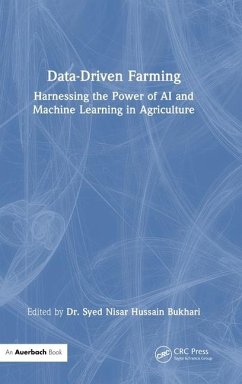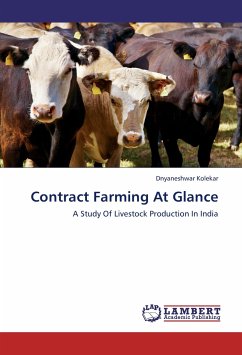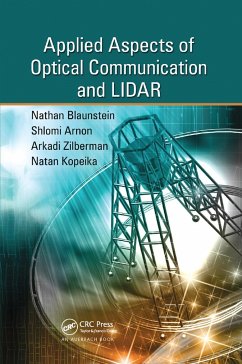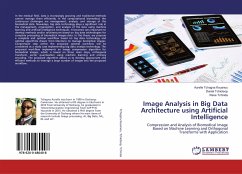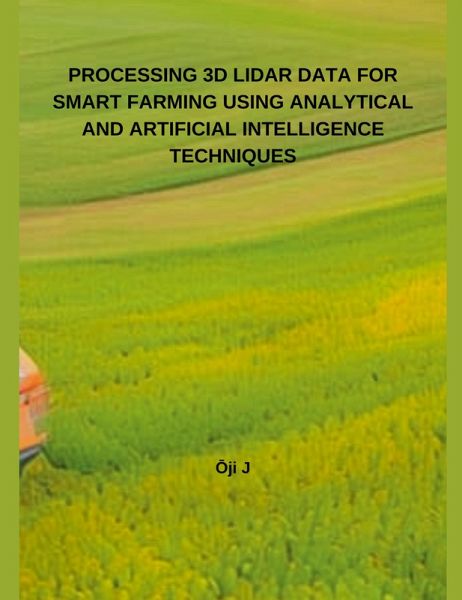
PROCESSING 3D LIDAR DATA FOR SMART FARMING USING ANALYTICAL AND ARTIFICIAL INTELLIGENCE TECHNIQUES
Versandkostenfrei!
Versandfertig in 1-2 Wochen
29,99 €
inkl. MwSt.

PAYBACK Punkte
15 °P sammeln!
With the beginning of the green revolution, farming practices in many developed and developing countries witnessed an increased use of chemical fertilizers resulting in adverse environmental conditions such as reduced soil fertility, soil erosion and environmental pollution. Thus a paradigm shift towards a sustainable and environmentally friendly farming practice turns out to be necessary. Site-specific agriculture, also known as precision agriculture, is an innovative approach to farm management that can encourage sustainable agriculture to improve crop performance and productivity. Site-spec...
With the beginning of the green revolution, farming practices in many developed and developing countries witnessed an increased use of chemical fertilizers resulting in adverse environmental conditions such as reduced soil fertility, soil erosion and environmental pollution. Thus a paradigm shift towards a sustainable and environmentally friendly farming practice turns out to be necessary. Site-specific agriculture, also known as precision agriculture, is an innovative approach to farm management that can encourage sustainable agriculture to improve crop performance and productivity. Site-specific farming offers a multi-dimensional approach to better farming practices regarding environment safety, food security, increased throughput, profit and economic growth. With precision agriculture, the future farms are likely to be managed with much greater spatial and temporal resolution than the present. Precision agriculture needs the application of technologies, methods and principles to detect and manage spatial and temporal variability and simultaneously avoid the usage of chemical fertilizers and decrease environmental footprint and production rate incurred by less farm input (Figure 1.1). This mode of agricultural practice allows farmers to manage variability at scales within a defined farm unit (e.g. section, quarter section) and target specific spatial regions of the farm unit. Spatially variable crop yield can exist due to many factors such as soil nutrient, moisture content, topography, as well as insect and weed infestations that change over time.




